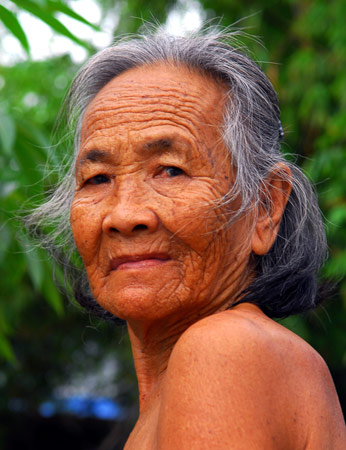Life Stages: Old Age
An average Thai lives to be about 77 years old. The strong cultural expectation is that adult children will care for their elderly and ailing parents. Children learn from a young age to treat older people with respect and consideration.
Elderly Thais who no longer work often help look after their grandchildren. Old people may live by themselves or may move in with one of their children.
Caring for the Elderly
Looking after the elderly in their old age is a way of repaying them for bearing and raising children. Traditionally, the youngest daughter is responsible for elderly parents, but any child will help out when needed. Many Thai men, including those who have migrated to the cities, consider it a moral obligation to give a portion of their pay to their parents.
Thai society strongly disapproves of neglecting one’s parents. A person is not supposed to pass the responsibility of eldercare to the state or to private agencies. When the elderly are ill or hospitalized, family members are the primary care providers, and rooms in private hospitals usually accommodate at least one companion for each patient. Some elderly Thais with no children find care and a place to live with other relatives.
Copyright © 1993—2025 World Trade Press. All rights reserved.

 Thailand
Thailand 